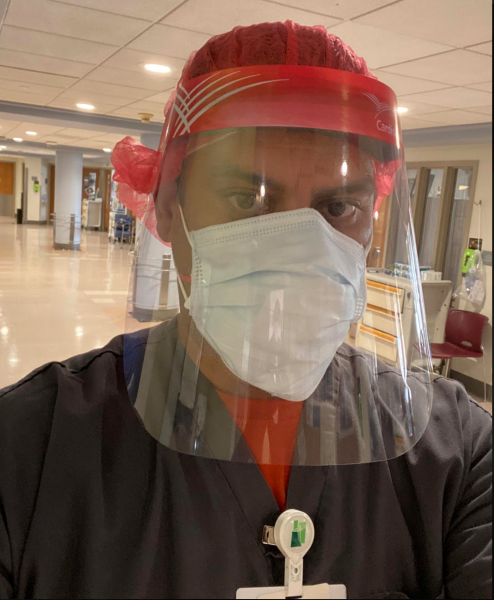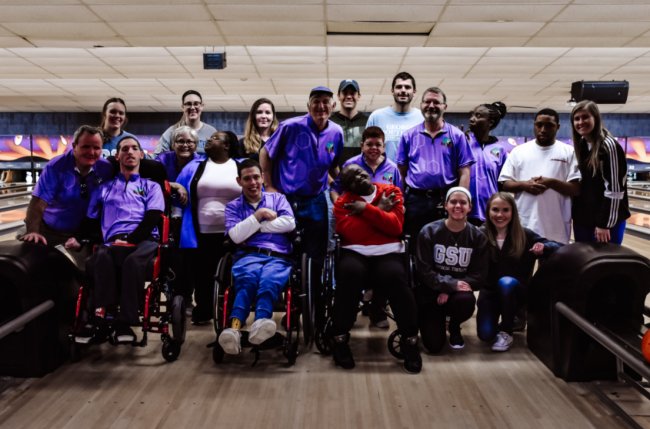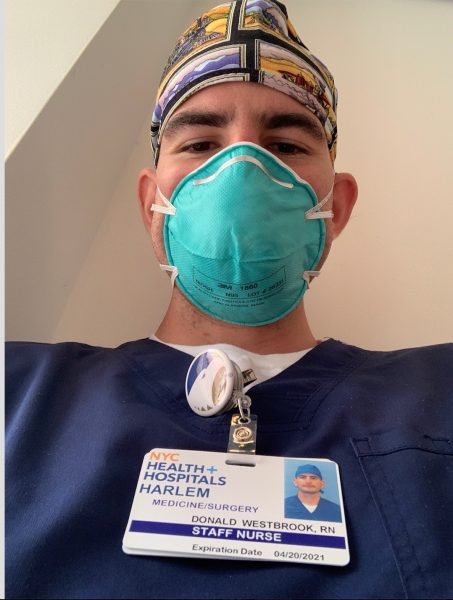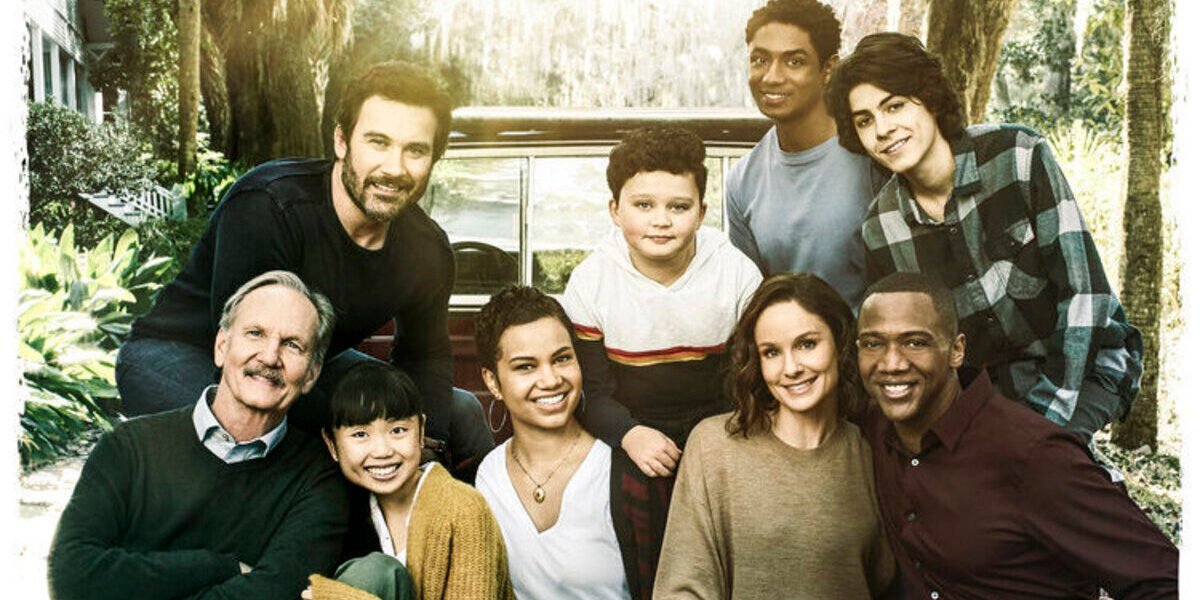Experts Matter. Find Yours.
Connect for media, speaking, professional opportunities & more.

MEDIA RELEASE: CAA announces the recipients of two provincial school zone safety awards
CAA South Central Ontario (CAA SCO) is proudly awarding two dedicated school zone safety volunteers with Provincial Safety awards. Tyra Sayles, 13, from Brantford has received the CAA School Safety Patroller of the Year award, and Kerri-Ann Sagert a grade 4/5 teacher at Agincourt Jr Public School in Toronto, has received the CAA School Safety Patrol Supervisor of the Year award. “For over 90 years, the CAA School Safety Patrol® program (SSP) has been advocating for the safety of children on their way to and from school, and in school zones. Sayles and Sagert are true road safety champions,” says Leslie Rocha, community relations specialist, CAA SCO. Sayles has been in the program for three years, and excels in her extracurricular activities and academically as well. “I do my best to balance everything because I take pride in making the world a better place in the things I do,” says Sayles. The CAA School Safety Patrol program is a joint effort between CAA, the police, school boards, teachers, busing consortia, parents, and approximately 20,000 dedicated student volunteers. In Brantford, there are over 800 students that participate in the program. “The students really respect and listen to Tyra. When it was discovered that students acted differently once Tyra got off the bus, she offered to stay on the bus for an extra hour of the day with no hesitation,” says Richard Melski, SSP Patrol Supervisor. Sagert, has been a part of the SSP program for 10 years. “I believe in everything the program stands for so much that I actively promote the program to younger students at the school, who will become Patrollers themselves,” says Sagert. Toronto Police constable and nominator Claudia Bednarczyk says, “She understands the value of having the CAA School Safety Patroller program at the school, and knows how to run it effectively, with little help.” Both awards were announced last night in a year-end online celebration for patrollers in Ontario and Manitoba. Patrollers, teachers and supervisors took part in the virtual celebration hosted by DJ Metime also known as Sarah Barrable-Tishauer and choreographer, Boneless. In Ontario, approximately 900 schools participate in the CAA School Safety Patrol program. CAA SCO works with over 50 partners to help deliver the program. For more information, visit https://www.caaschoolsafetypatrol.com/.

Is Asia a powder keg ready to blow?
This week has seen rising tensions across Asia with key players facing off on what looks to be a dramatic rise in tensions with the potential for action. First off … Korea, where early Tuesday the first salvo was thrown: North Korea has blown up a joint liaison office with the South near the North's border town of Kaesong. The move comes just hours after the North renewed threats of military action at the Korean border. The site was opened in 2018 to help the Koreas - officially in a state of war - to communicate. It had been empty since January due to Covid-19 restrictions. In a statement, South Korea warned it would "respond strongly" if the North "continues to worsen the situation". The destruction of the office, it said, "abandons the hopes of everyone who wanted the development of inter-Korean relations and peace settlement in the Korean Peninsula". "The government makes it clear that all responsibility of this situation lies in the North." June 16 - BBC And this incident occurred which saw gun fire traded between China and India for the first time in almost a half century: Three members of India’s armed forces have been killed in a “violent face-off” with Chinese soldiers on their disputed Himalayan border, the Indian army has said in a statement. The deaths are the first loss of life in the border area in at least 45 years, and come amid a renewed dispute between the two countries in recent weeks. Indian and Chinese soldiers, who often do not carry weapons in the area to avoid escalating conflicts, have brawled, detained each other and deployed forces and equipment in the western Himalayas in recent weeks. “During the de-escalation process under way in the Galwan Valley, a violent face-off took place yesterday [Monday] night with casualties on both sides,” the Indian army said in a statement on Tuesday afternoon Delhi-time. “The loss of lives on the Indian side includes an officer and two soldiers.” It said “senior military officials of the two sides are currently meeting at the venue to defuse the situation”. It was unclear whether shots had been fired or if the men were killed in hand-to-hand combat. Several Indian media reports cited defence sources claiming the fighting involved stones and clubs. The Chinese also military suffered casualties, according to a tweet by the editor-in-chief of China’s state-run Global Times newspaper. “Based on what I know, Chinese side also suffered casualties in the Galwan Valley physical clash,” Hu Xijin wrote. He did not give further details. June 16 - The Guardian The world seems on edge, and if you are a journalist covering these topics and you need the perspective and input of an expert who can help with your story – then let us help. Dr. Glen Duerr's research interests include comparative politics and international relations theory. Glen is an expert on this subject and is available to speak to media regarding this topic– simply click on his icon to arrange an interview.

CAA Insurance Company has developed a list of 10 questions that customers can ask their insurance companies to make sure they are covering all the bases when it comes to finding savings while staying protected. “As of right now, much of the relief provided by insurance companies during the COVID-19 pandemic will soon expire, and customers will be looking for ways to continue to save since many cars are still sitting in the driveway,” said Elliott Silverstein, director, government relations, CAA Insurance. “We felt it was important to empower people with the information they need to continue to advocate for lower premiums for the months ahead.” In a recent survey conducted in late April by CAA South Central Ontario, only one out of five CAA members surveyed were aware that their insurance company had provided relief during COVID-19. The most preferred action to lower auto insurance premium was reviewing their policy with an agent/broker to ensure coverage and costs meet individual needs. Based on this data, CAA Insurance wanted to make sure that people are asking the right questions. Customers are encouraged to call their agent or broker and review the following list of questions to make sure they are receiving all the potential savings available. What savings relief payments or refunds do you have for me during the pandemic? Are there coverages that I can reduce or put on hold while I’m not driving? Can we do a review to see if I can save more on my policy? Will increasing my deductible provide me cost savings? Do you have an insurance policy where I would only pay for insurance while I am driving, for example, pay-as-you-go? When does my policy renew and is there a penalty if I cancel my policy mid-term to save money with another insurance company? What can I do if I can’t make my insurance payments this month? Will changing my coverage from commuting to pleasure help me save money? Are there any other ongoing discounts you offer that I might qualify for? What can I do to keep my rates low after the pandemic?

When the first cases of the novel coronavirus arrived in Chatham County, Georgia, Rafael Agosto, who has been a respiratory therapist at St. Joseph’s/Candler Hospital in Savannah for 17 years, had to recalibrate his approach to lung care. “Initially, it was kind of wild because we didn’t know what to expect and how to manage any of these patients,” said Agosto. “What are we looking for, and how do we treat this?” The primary role of a respiratory therapist is to assist patients who have trouble breathing by administering oxygen, managing ventilators and measuring lung function, among other methods. COVID-19 symptoms include fatigue, fever, cough and shortness of breath, and at the onset, Agosto and his colleagues raced to stabilize patients who tested positive for the precarious disease. “We were trying to keep them oxygenated,” he said. “It was sort of like pneumonia, but we wouldn’t treat it like a normal pneumonia because it’s like a deadly pneumonia. Patients were declining very fast so you didn’t have time like you normally would with other patients. And they were of all ages. That’s what was so scary.” While grappling with patient care, Agosto and his co-workers were also dealing with fear for their own safety with exposure to the virus in such close proximity. St. Joseph’s/Candler, Agosto’s employer since he graduated with a B.S. in respiratory care from Georgia Southern University’s Armstrong Campus in 2003, made it a priority to outfit the health care workers with proper personal protection equipment (PPE), Agosto said. “That was scary but they made sure we had what we needed,” he explained. “Safety was the number one key. So the proper PPE, it was everything. We had all of it. A face shield, goggles, scrub cap and masks. They were not comfortable at all. At least here when I wore them I had downtime, but in Boston, holy moly, my face was bruised.” Agosto registered for a four-week rotation with a crisis nurse staffing company that placed him at Good Samaritan Medical Center in Brockton, Massachusetts, a suburb of Boston. COVID-19-related deaths in Massachusetts were outpaced only by New York and California, and Brockton was the second hardest-hit community in the state. “The reason I went was the opportunity to help patients, number one, and to learn how they were managing their ventilator patients there so it could help here,” he explained. On April 19, Agosto reported to the facility, suited up for his first 12-hour shift. “I was in complete shock when I got in there,” Agosto said. “The ICU was full. Every single floor was possible for COVID.” The hospital averaged 80 to 90 cases throughout his stay, and the intensive care unit remained full. Days were hectic and taxing; lunch was an afterthought. His focus was on keeping patients off of ventilators, as global reports show that more than half of ventilated coronavirus patients don’t survive. Yet, “it started becoming hard to get them off ventilators,” and his group often didn’t have a choice but to put patients on 100% oxygen. Stress didn’t let up, but Agosto found moments of solace in interactions with patients. “I would walk into patients’ rooms and they all kept telling me the same thing — they’re scared,” he said. “Because they don’t know anything. It’s like a ghost town because the nurses are running around. Patients felt they weren’t being seen much.” In response, Agosto offered his undivided attention. “That’s one thing that made me feel really good,” Agosto continued. “Just to sit there and talk with them for a few minutes. Or just listening to them. That’s what we’re here for, and they were appreciative.” Agosto returned to Savannah healthy and with a new oxygen delivery device to share with his co-workers at St. Joseph’s/Candler. His manager ordered the devices to serve local patients. “The most important thing I took out of this is that it’s serious, and people are doing everything they can,” Agosto said. “They’re putting their lives in jeopardy for the patients, and I’m glad I had the opportunity to do that.” The accomplishment of his goals in a time of crisis and his continued dedication as a respiratory therapist leave Agosto fulfilled. “I didn’t get sick,” he said. “I helped as much as I possibly could. I did what I wanted to achieve. I’m so happy and blessed because I still love my job.” If you’re a journalist covering COVID-19 and how Georgia Southern University is helping mitigate the spread of this virus – then let us help. Barry Joyner, Ph.D., is the dean of Georgia Southern University’s Waters College of Health Professions - simply click on his icon to arrange an interview today.

Twelve students in the Doctor of Physical Therapy (DPT) program at Georgia Southern University were awarded scholarships totaling more than $17,000 from the Savannah American Business Clubs (AMBUCS). “This is a recognition of the dedication we have to AMBUCS and helping others in our community,” said scholarship recipient and AMBUCS student leader Alexandra Adams. “Most of us are paying for our education with loans, and the scholarship helps relieve some of the financial burden that comes with pursuing a graduate degree. I am very thankful that AMBUCS has considered me for this scholarship the past two years.” The organization has hosted a League of Exceptional Bowlers on Saturdays for more than 50 years. The DPT students join the Savannah AMBUCS league to assist bowlers with physical and intellectual disabilities to promote an inclusive and competitive environment. In addition to the hands-on experiences, DPT students have the opportunity to interact with different members of the community. “It shows our commitment to the inclusion of our community and our passion for encouraging movement for everyone, despite their limitations, to increase their quality of life,” Adams said. “The program reinforces our classroom training, as well as, enhances our communication skills with others. Each member of our DPT program gets as much of a benefit from attending AMBUCS as the bowlers do.” A century-old membership organization dedicated to helping people with disabilities, the Savannah AMBUCS awards scholarships to students pursuing careers in the allied health professions and who volunteer with AMBUCs. If you’re a journalist looking to cover this story or would like to learn more about the physical therapy and other programs at Georgia Southern University – then let us help. Barry Joyner is the dean of Georgia Southern University’s Waters College of Health Professions - simply click on his icon to arrange an interview today.

Curious about cicadas? Let a leading insect expert from Michigan State answer all your questions!
For excited entomologists and hungry insect eating animals like racoons, it has been 17 years of waiting. Soon, millions of cicadas are expected to emerge from underground to feast upon. The bugs that live underground for years and years, and emerge only to breed – but for a short time they are loud, visible and spectacle for all to see. Gary Parsons is the Manager of the A.J. Cook Arthropod Research Collection, Director MSU Bug House. He recently answered several questions about the upcoming emergence of cicadas. Q: What exactly are these bugs (beetles? Wasps?)? “Cicadas are a type of insect that we generally do refer to as ‘bugs,’ in the order Hemiptera, suborder Auchenorrhyncha and family Cicadidae. All these kinds of ‘bugs’ are distinguished from other kinds or insects by having their mouthparts modified into the form of a slender, jointed beak for sucking up fluids.” Q: Are they harmful to humans, animals, or property? “Cicadas do not bite and are harmless to humans and property – other than being a nuisance. They may amass in millions in parks, woods, neighborhoods and seemingly be everywhere. When they are this abundant, they fly, land and crawl everywhere, including occasionally landing on humans. “After mating, female cicadas do insert and lay their eggs inside slender stems and twigs of trees and shrubs. When the tiny nymphs hatch out, they drop to the ground, burrowing the soil and then find a root to suck fluids out of rot the next 13 or 17 years. The egg-laying often kills twigs and branches, effectively pruning back the trees or shrubs, but sucking fluids from the roots seem t0 have little or no effect on the plants. “With millions of adult cicadas emerging at once, predators tend to have a feast on them. Sometimes dogs or pets will gorge on so many of them it will make them sick, but they are not toxic or otherwise harmful.” Q: Is there anything humans could do to avoid cicadas getting into homes like ants and spiders manage to do? “Cicadas will not enter homes, but they will amass and rest on outside walls. They only way they could get inside is accidentally flying in through an open door or window, or because they had landed on a person who then carried them inside unnoticed.” Q: People may be familiar with the loud noises they make; what other characteristics do cicadas have? “Yes, the males of all species of cicadas sing to attract the females, and most people are familiar with their buzzing songs in the summer. However, cicadas are probably more famously known for their long lifecycles, especially the PERIODICAL cicadas which have either a 13- or 17-year life cycle. “There are six species of periodical cicadas with populations scattered around the eastern United States that emerge in different years called broods. Each brood is isolated in a certain region and only emerges in that area in 17-yr or 13-year cycles and won’t be seen in the intervening years. However, a different brood may be emerging elsewhere in the U.S. during intervening years, so nearly every year somewhere in the eastern U.S. a brood will be emerging. The 17-yr broods seem to occur mostly in the northern U.S. and 13-yr broods emerge more to the south. In some years, both a 13-yr and 17-yr brood will emerge, but not in the same location, and in some years no cicadas will emerge. “It is Brood IX (9) that is supposedly emerging this year and it will only be seen in the middle Atlantic States and nowhere else. It should already be emerging, and they usually emerge in millions, which some find quite fascinating, and others a major nuisance. Brood X (10), the largest and most widespread brood in the U.S., is the only brood that can be found in Michigan. As far as I know, the only population still existing in Michigan occurs down around Ann Arbor. It last emerged in 2004, so it is due to emerge again next year in 2021. Since travel restrictions due to COVID will prevent most folks from driving south to see this year’s emergence, they will just need to wait until next year and they can see them closer to home. “ANNUAL cicadas, which are more commonly seen or heard here in Michigan, only have a three- or four-year life cycle. As their name implies, some emerge every year, and these are the ones we hear singing every summer. However, compared to the periodical cicadas, they emerge in much lower numbers in any given area. There are several species of annual cicadas here in Michigan and they can be distinguished by having different songs.” Q: What environmental factors bring them out every 17 years (or is it a cycle that has been true-to-form through the years)? Is there anything different in 2020 than years before? “Periodical cicadas have been doing their 13- or 17-year cycles for probably millions of years. It is thought that by having the long-life cycles, cicadas have prevented predators from specifically targeting them for food. Then by emerging in the millions all at once, they are too numerous for any predators that do eat them from ever wiping them out. There are so many of them that lots of them will always survive. “In the long ago past, it is likely the different broods were more widespread geographically. It is likely that urbanization, widespread commercial farming, and other factors have reduced and limited them over the years. You take away the trees and shrubs in forests and they don’t have the roots to feed on. Fortunately, they have adapted well to using street trees, parks, and yard trees as their hosts, and can still survive in urbanized areas. It is likely that Brood X was once more widespread in Michigan, and we have a few old records in our collection to support this, but in 2004, they were only reported from the area around Ann Arbor. The only thing special about 2020 is that it is the emergence year for Brood IX. As far as I know, no one has studied or even postulated what the effects of climate change may have on these cicada populations in the future.” Q: What haven't we heard about them before? “Almost every year a brood of cicadas emerges somewhere, and it usually makes a big splash in the news media. Some people will specifically travel around the U.S. each year to these emergence areas just to experience the sound and numbers of insects. Some of these other broods emerge in states just south of Michigan, and that sometimes get notice here. However, since only the one brood emerges in Michigan, only once each 17 years, and then only very locally, they just don’t quite get the same attention here as they might elsewhere. And Brood X is the largest and most widespread brood so it is likely that areas south of Michigan where it also occurs will get much more media attention and our little Michigan population goes mostly unnoticed by comparison. So next year when our cicadas emerge, you can play it up and give some people in Michigan the opportunity for an experience they probably won’t forget!” Gary Parsons is available to speak with media about this interesting event – simply click on his icon to arrange an interview today.

Are China and America set to face off in a warmed-up version of the cold war?
Tensions and temperatures are rising between the United Stated and China. The straws on the camel’s back have been adding up in recent years, and the recent rhetoric about the origins of COVID-19 and the reaction to China’s further pursuit of the ‘One-China’ policy may be seeing both countries crossing the political Rubicon and headed toward a stand-off. The first shot fired may be China sending two air raft carriers to the Yellow Sea. This will be the first time China's new aircraft carriers deploy together for the first time and the move has sparked fears in Taiwan of a possible invasion of its Pratas islands - which could then be used as a staging point for an attack on the mainland. It comes after Beijing threatened to "reunify" Taiwan in response to Donald Trump saying he could "cut off the whole relationship" with China. Tensions have been growing between the US and China over the origins of Covid-19. The US said on Friday it is set to ban trade with 33 Chinese companies. But China's foreign minister Wang Yi said yesterday this would risk "a new Cold War" as he rejected Washington's "lies" over its handling of coronavirus while saying Beijing was open to an international effort to find its source. Wang said the United States had been infected by a "political virus" compelling figures there to continually attack China. He said: “It has come to our attention that some political forces in the US are taking China-US relations hostage and pushing our two countries to the brink of a new Cold War." May 25 – The Sun It is a concerning development given the current state of global affairs. And there are a lot of questions to be asked: What will it take to de-escalate the issue? What would a 21st Century cold war look like? And at what cost will this come to both countries who are dealing with serious economic pressures at home? If you are a journalist covering this topic – then let our experts help. Dr. Glen Duerr's research interests include comparative politics and international relations theory. Glen is an expert on this subject and is available to speak to media regarding this topic– simply click on his icon to arrange an interview.

As the COVID-19 pandemic unfolded and healthcare organizations began experiencing shortages of personal protective equipment (PPE), faculty, staff and students at Georgia Southern University stepped up to fulfill a need. Making use of the 3D printers on the Statesboro and Armstrong campuses, as well as at the FabLab at the Business Innovation Group’s (BIG) downtown Statesboro location, the campus communities quickly began production of protective face shields and respirators. “We can’t afford to sit back and wait for things to happen,” said Dominique Halaby, DPA, director of the BIG. “We have to make them happen. We have this responsibility to make a difference, to be a part of that front line, whether it’s immediately in our community, our state or our respective area.” To date, the Department of Manufacturing Engineering has sent 200 3D-printed protective face shields with headbands to Augusta, Georgia, for healthcare workers at Augusta Medical Center, while the BIG has sent 100 face shields and 10 “Montana Masks,” a 3D-printable respirator filtration mask that can be fitted to a healthcare provider’s face and sanitized between uses, to Atlanta-area hospitals. The Department of Mechanical Engineering on the Armstrong Campus has also printed Montana Masks that will be delivered to workers in the St. Joseph’s/Candler Hospital System (SJCHS) in Savannah, Georgia, while the Respiratory Therapy Program in the Waters College of Health Professions donated 10 ventilators to the Georgia Emergency Management Agency. “I am unbelievably proud of our faculty, staff and students who have their own families to take care of, but are putting themselves on the line to help our medical professionals in this time of critical need,” said Mohammad Davoud, Ph.D., dean of the Allen E. Paulson College of Engineering and Computing. Wayne Johnson, Ph.D., professor of mechanical engineering, believes providing these materials to the Savannah community during a time of critical need is reinforcing a longtime commitment to the region. “The Armstrong Campus of Georgia Southern has a long history of working within the Savannah community, and during this pandemic, it was especially important for mechanical engineering faculty and students at the Armstrong Campus to step up during a time of great need,” said Johnson. “ Our work with SJCHS to develop, test and donate 3D-printed respirators may also lead to other research and development collaborations in the post-COVID-19 future.” In addition to benefiting area healthcare workers, Johnson believes this project is a great way for students to put their classroom skills into practice. If you would like to learn more about how the students, staff and faculty at Georgia Southern University are helping out during the COVID-19 crisis – the let our experts help. Wayne Johnson is an expert in additive manufacturing, mechatronics, biomechanics and engineering education. He is available to speak with media about this great initiative, simply click on his icon to arrange an interview today.

Diary of a COVID-19 crisis nurse in NYC: A Georgia Southern student’s first job
On May 1, Tucker Westbrook could finally sleep in. He’d been on duty as a COVID-19 crisis nurse at Harlem Hospital Center in New York City for 11 consecutive days, with a routine that began before the sun came up and ended long after the city had gone dark. Most mornings, he’d wake at 5:45 am., center himself with prayer and meditation, eat breakfast, and hop on a bus in time to clock in for his shift at the largest public hospital in Central Harlem by 7 a.m. Each day as he entered the halls of the facility’s surgical floor, which was transformed into a COVID-19 holding unit for the larger part of his three-week work rotation, he was unsure of what he’d encounter. Just weeks earlier, Westbrook, a May 2019 Georgia Southern University nursing graduate from Butler, Georgia, accepted a short-term contract to assist with the Coronavirus pandemic in the epicenter of the U.S. outbreak. This was Westbrook’s first professional job, following what was supposed to be a yearlong mission trip in Southeast Asia, but was cut short due to the pandemic, and nothing could fully prepare him for the impact of his initial experience. “The first day, I thought, ‘I’m not prepared for this,’” he admitted. “Those first few days I was on pins and needles and thought, ‘how am I going to mess up?’” The stakes were high. By the time he arrived in New York City, thousands had already been hospitalized, and many had died. Seasoned nurses and doctors were depleted and morale was low across the city, he explained on the phone as he looked out over a desolate Times Square from his hotel window. “They asked me, ‘why did you come here?’” Westbrook recalled. “And I said that I wanted to be, hopefully, a light in this dark place right now. The patients, the doctors, the nurses, the nursing assistants, the janitorial assistants — my goal is to learn everyone’s names and greet them with a smile behind my mask.” A friend encouraged Westbrook to look for a temporary nursing job upon his return from abroad. When he applied for highly competitive positions with a crisis staffing agency, he requested placement in an area hard hit by the pandemic. “Just like Southeast Asia, I wanted to go where there was the biggest need, and I had enough gifts to meet that need,” Westbrook said. This was Westbrook’s first trip to New York, and he stepped into a scene where images of makeshift morgues and ventilator shortages splashed across the media came to life in front of him. “It has been surreal to see,” he said. Assigned to provide cluster care to potential COVID-19-positive patients for minimal exposure, Westbrook also focused on simple acts of kindness to help ease increased anxiety among the patients. “That might be things as small as giving a wet rag to wipe their face,” Westbrook said. “It may be filling their jars with ice cold water in the morning. Whatever might help them feel more comfortable.” Westbrook’s patients were diverse: a teenage gunshot victim who sobbed at the prospect of being infected with the virus; an adult male who discussed intimate thoughts about death with his family over the phone; and a woman who was depressed until Westbrook sat with her so she didn’t feel alone. Experiencing humanity in its most delicate form was life-defining. “I was learning more about nursing care but also continuing to serve (my patients) beyond simply giving them medicine,” Westbrook said. “I was able to advocate for them with the doctor, especially without their families there. I’m learning how to go above and beyond, and what our job responsibilities are. I want to keep growing and learning to continue to give care to my patients.” The hospital staff also offered enormous support and guidance to Westbrook, who almost two weeks into the job felt exponentially more confident in his abilities. “If you had told me about any of this I wouldn’t believe it,” he said. “It has been incredible. I did not think I could do that at all, and here I am on the other side. This was such a lofty and high goal to complete this and do well. I’m thankful to even be here and have this opportunity.” Westbrook credits his father for encouraging him to study nursing, and Georgia Southern faculty for their expert instruction, which he put to use in New York, as well as their sage advice. “I wasn’t sure I was going to get my license,” he said. “My desire to become a doctor or a missionary became more and more compelling, but my professors assured me that it would be worthwhile to pursue my license, and they were right.” Following a quarantine in his family’s home, Westbrook will begin pre-medicine classes at Georgia Southern this summer. If you are a journalist looking to know more about Tucker’s story or the nursing program at Georgia Southern University – let us help with your coverage. Barry Joyner is the dean of Georgia Southern University’s Waters College of Health Professions - simply click on his icon to arrange an interview today.

Step aside Walking Dead – There’s another leading TV show being shot in Georgia now
When location scouts for NBC’s new television series “Council of Dads” combed Savannah for a realistic venue to shoot multiple hospital scenes, they knew they had found something special in the Health Professions Academic Building on Georgia Southern University’s Armstrong Campus. “I set up a visit, came and looked at it and I was floored,” said “Council of Dads” location scout and Armstrong Campus alumnus Anthony Paderewski. “I couldn’t believe it. Basically, you have a backlot for a TV show here. It was absolutely perfect for what we were looking for. So that being said, I went and I talked to the producers and I got some pictures. When I showed the pictures everyone was blown away.” “Council of Dads,” which premiered March 24 and now airs on Thursdays, is based on the book by Savannah native Bruce Feiler, and developed by former “Grey’s Anatomy” showrunners Tony Phelan and Joan Rater, who also serve as executive producers on the series. The story follows Scott Perry, a father of five who, after receiving a cancer diagnosis, asks a group of friends to step in as father figures to his children in the event that he isn’t around to see them grow up. “It’s an emotional family drama,” explained “Council of Dads” co-executive producer and producing director Jonathan Brown. “The idea is to try and be as real as possible. And the show is telling the story of a family and what it means to be a family in this day and age. It’s not just blood. The definition of family is growing, broadening with the types of relationships that are now included in a family. This is the story of one of those families that is made up of blood relationships, friendships, adoption and all those different kinds of things.” The show filmed almost entirely on location in the Savannah area for five months. Several of the scenes take place in a hospital, and the set has to be believable, multifaceted and offer the right aesthetic for television. Primarily, the true-to-life setting allows the University to provide exceptional education and training opportunities to help students succeed while addressing the healthcare needs of the region. The Waters College of Health Professions, housed in the Academic Building and Ashmore Hall, is the largest undergraduate health sciences college in the state of Georgia, and the University’s allied healthcare programs represent almost one-fifth of all undergraduate healthcare degrees earned in Georgia. “The use of the Health Professions Academic Building is validation that we are training our students for real-world health care settings,” said Barry Joyner Ph.D., dean of the Waters College of Health Professions. “The goal for the building was to simulate a hospital setting, and we have accomplished that.” Are you a journalist looking to cover this topic or learn how Georgia and Universities like Georgia Southern are working with film and television industries – the let us help with your stories. Barry Joyner is the dean of the Waters College of Health Professions at Georgia Southern University and is available to talk about this latest project on campus – simply click on his icon to arrange an interview today.




